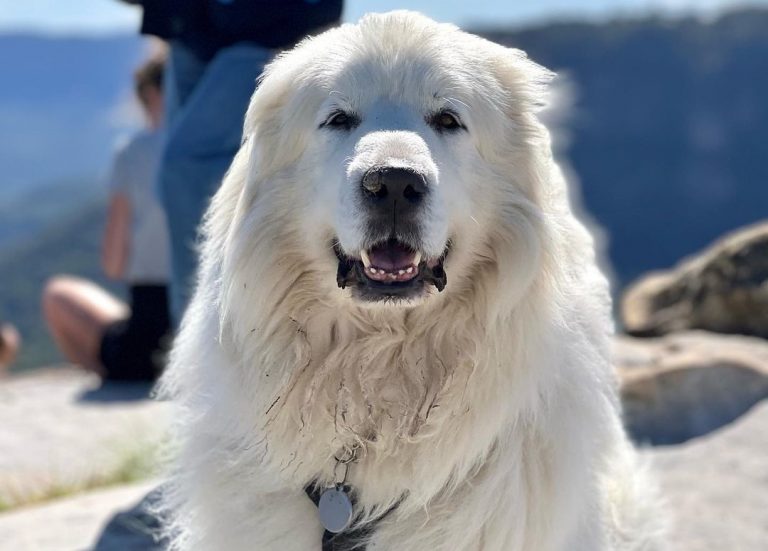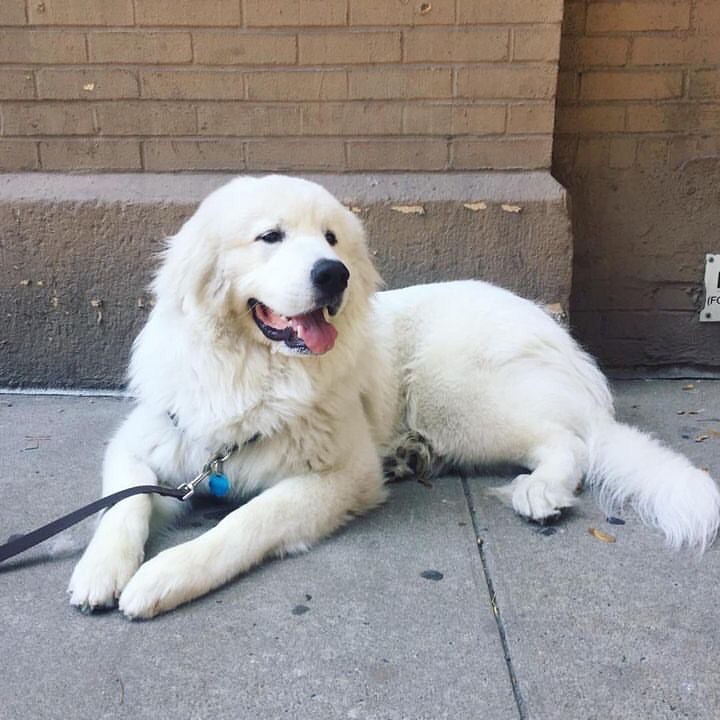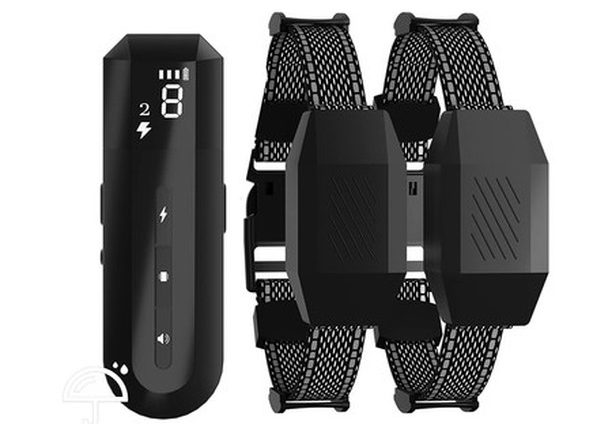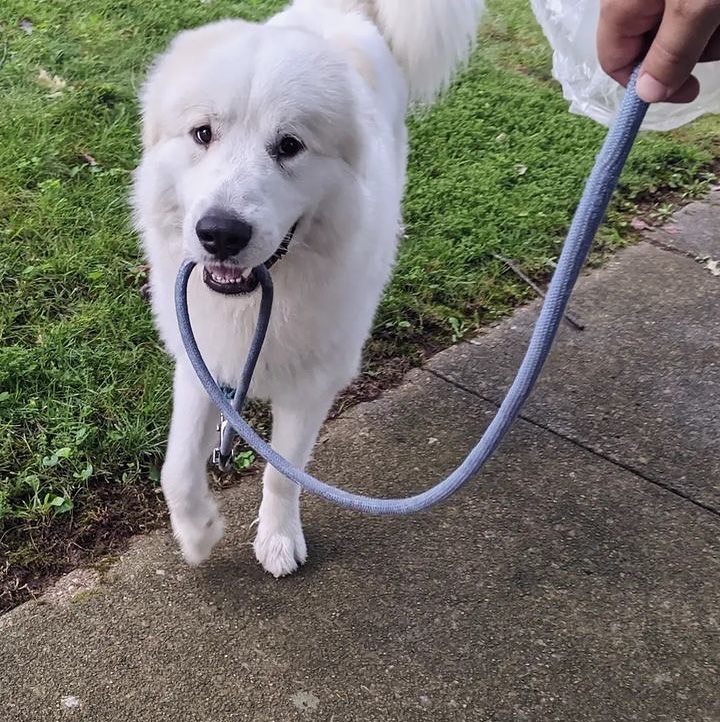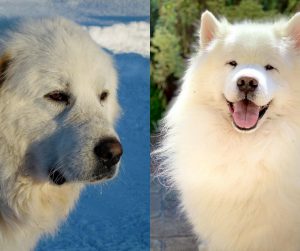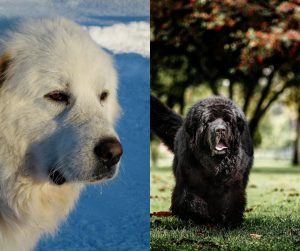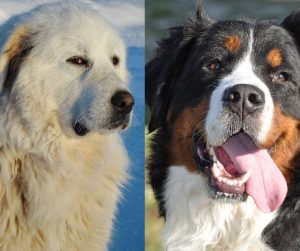If you are a Great Pyrenees owner, you probably know this dog breed is intelligent and independent. Sometimes, their independence can border with stubbornness. All dogs need proper obedience training, but Great Pyrenees even more. Why? This large dog can look dangerous to outsiders, and the smallest sign of aggression will make you look irresponsible.
The question today is do shock collars work on Great Pyrenees? What are their upsides and downsides? What are some of the best training methods for a Great Pyrenees breed?
Whether you are looking to teach basic commands or prevent some unwanted behavior, we have you covered.
Why Owners Might Resort to Shock Collars?
Any Great Pyrenees owner will tell you. These dogs bark. And they bark quite a lot. It is in their instinct to use their extensive barking and intimidating look to ward off intruders.
You have to understand, that these dogs were bred to guard against predators. They begin barking when they are just puppies. Even a three-month Great Pyrenees puppy will bark. It is in their blood.
This guardian dog will consider the property as his territory. Everything inside, it is his job to protect, including other animals, dogs, children, or anything in between.
To be fair, the number one reason people get rid of Great Pyrenees is the excessive barking problem. This is why you might find a Great Pyrenees rescue.
Some owners have tried using shock collars to cope with the barking. But is that really the solution? Are there some other alternatives?
Training Needs of Great Pyrenees
If you can understand the training needs of your Great Pyrenees puppy, you will be more successful in your basic obedience training. This is a large dog breed, one that needs consistent and efficient training before it can go in public. You do not want a large dog like this to cause problems in public.
They are known for their bark, so they need proper training to address the issue. They are also known for their independent and strong-willed nature.
Because of that, they need a firm, yet gentle approach to training. These dogs do not respond well to punishment.
While shock collars can be used, their effectiveness is debatable. Why? Because these dogs have a thick coat and high pain threshold. You might need to set the shock collar on extreme pain before these dogs feel something. And that is not humane.
And then there is some more. These dogs are sensitive and intelligent. That means they respond better to positive reinforcement methods, including praise and rewards. Because of their bonding and loyalty with their dog owner, these dogs might react to praise even more than to treats.
Types of Shock Collars
There are different types of shock collars. Some of them might be illegal to use. With that in mind, here are some options.
- Pet containment systems are used to keep a dog inside the perimeter of the residence without constructing a physical barrier. These systems of underground fence with shock collar might work against dogs that are escape artists. But they are not effective with Great Pyrenees, since this dog will not look to escape the property
- Bark control shock collars try to curb excessive barking by delivering a shock at the moment the dog begins the unwanted behavior. They can be activated by microphone or vibration, and some use both sound and vibration to eliminate barking
- Remote shock collars are activated by a handheld device. They give the dog an electric shock, causing pain. Unlike automatic collars, they do require a person to trigger every shock
Electrical shock collars can also be modified to cause different amounts of pain or sensation. Pain is often the outcome to measure because of its nature.
What To Consider Before Getting a Training Collar?
As I said before, we can answer the question do shock collars work on Great Pyrenees with no. These dogs do not cope well with punishing training methods.
Now, you might try. And there are several factors to consider before buying a shock collar.
- Size and fit are very important. Remember, these large dogs have thick fur, and if you want a training collar, make sure it is adjustable and can accommodate the size of your canine
- Durability is another factor, opt for a collar made of high-quality materials like nylon or leather
- Safety features should include reflective stitching, LED lights, and quick-release buckles
- Check for different training modes, since dogs might react differently to vibration, sound beep, and static stimulation level
What Are Some Alternative Training Methods?
I firmly believe that shock collars should not be used on dogs. There is always a better alternative. What you need to understand is that the Great Pyrenees breed can be a stubborn one. As a Jack Russell terrier owner, I fully understand what stubbornness means.
And believe me, there is a way to trick even the most stubborn dog. The goal is to make your dog believe that he is leading, while you are leading. And set some boundaries.
There are simple tricks that you can use to establish yourself as the leader. When your dog sees you as an authority, they will listen and follow you. That can make the training much easier.
Another point. Great Pyrenees dogs, much like Pitbulls, love affection. So try to use that more in your training. Dogs love it when you tell them good boy and good girl.

